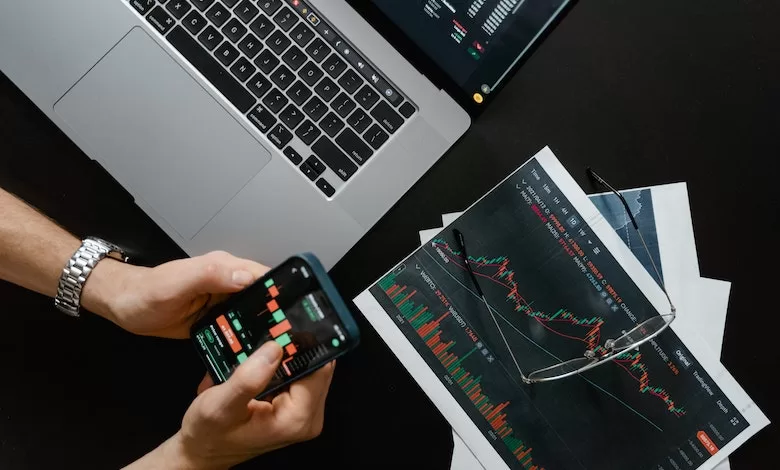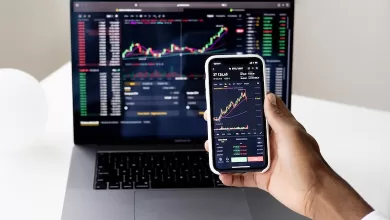
Algorithmic Trading: Revolutionizing Financial Markets
Algorithmic Trading: Revolutionizing Financial Markets
Introduction
Algorithmic trading, often referred to as algo trading or simply algo-trading, has emerged as a game-changer in the financial markets. In this digital age, where data and technology reign supreme, algorithms are reshaping the way stocks, bonds, currencies, and commodities are traded. This article explores the fascinating world of algorithmic trading, its impact on financial markets, and its potential future trajectory.
Understanding Algorithmic Trading
In a Nutshell
Algorithmic trading involves the use of sophisticated computer algorithms to execute trading orders at speeds and frequencies that humans simply cannot match. These algorithms analyze vast amounts of data, identify market trends, and execute trades with precision and efficiency. They are designed to capitalize on opportunities in milliseconds, making trading decisions faster and often more accurate than human traders.
How It Works
1. Data Collection and Analysis
Algorithms begin by collecting a wide range of financial data, including price movements, trading volumes, and market news. This data is continuously analyzed to identify patterns and trends.
2. Strategy Formulation
Based on the analysis, trading strategies are formulated. These strategies can be as simple as moving averages or as complex as machine learning models. The goal is to predict price movements and profit from them.
3. Order Execution
Once a trading opportunity is identified, algorithms execute orders automatically. They can buy or sell assets within microseconds, taking advantage of price discrepancies across different markets.
4. Risk Management
Effective risk management is an integral part of algorithmic trading. Algorithms are programmed to limit losses and adhere to predefined risk parameters.
Impact on Financial Markets
1. Liquidity
Algorithmic trading has significantly increased liquidity in financial markets. The high-frequency trading (HFT) algorithms provide continuous buy and sell orders, making it easier for traders to enter and exit positions without causing significant price fluctuations.
2. Efficiency
Algo-trading has improved the efficiency of markets. Orders are executed swiftly and at the best available prices, reducing trading costs for investors and minimizing the impact of market orders.
3. Market Access
Algorithms have democratized market access. Small investors can now compete with large institutions on a level playing field, as they too can employ algorithms to execute trades efficiently.
4. Volatility
While algorithmic trading can dampen short-term volatility, it has been blamed for exacerbating flash crashes due to automated responses to market shocks. Proper risk controls are essential to mitigate this issue.
Challenges and Concerns
1. Market Manipulation
There are concerns that algorithmic trading can be used for market manipulation. Strategies like spoofing and layering involve placing orders with no intention of executing them to mislead other traders.
2. Regulatory Oversight
Regulators are struggling to keep pace with the rapid evolution of algorithmic trading. Ensuring fair and transparent markets requires robust oversight and regulation.
3. Systemic Risk
The interconnectedness of algorithmic trading systems can lead to systemic risks. A malfunction in one system could trigger a chain reaction, potentially causing market disruptions.
The Future of Algorithmic Trading
1. AI and Machine Learning
The future of algorithmic trading lies in the continued development of artificial intelligence (AI) and machine learning (ML) algorithms. These advanced algorithms can adapt to changing market conditions and learn from past data, potentially enhancing trading performance.
2. Blockchain Technology
The integration of blockchain technology into algorithmic trading could bring unprecedented transparency and security to financial markets. Smart contracts and decentralized exchanges may revolutionize settlement processes.
3. Quantum Computing
The emergence of quantum computing may usher in a new era of algorithmic trading. Quantum computers have the potential to perform complex calculations at speeds unimaginable with classical computers, enabling traders to develop even more sophisticated strategies.
4. Ethical Considerations
As algorithmic trading becomes more prevalent, ethical considerations will come to the forefront. Questions about the impact of automated trading on market fairness and inclusivity will need to be addressed.
Conclusion
Algorithmic trading is undeniably the future of financial markets. Its ability to process vast amounts of data, execute trades with precision, and enhance market efficiency makes it an indispensable tool for investors and institutions alike. However, the rise of algorithmic trading also brings challenges, including regulatory concerns and ethical questions. As technology continues to evolve, so too will the world of algorithmic trading, shaping the future of financial markets in ways we can only begin to imagine. Staying informed and adaptable will be key for market participants as they navigate this exciting and transformative landscape.
Read this article




